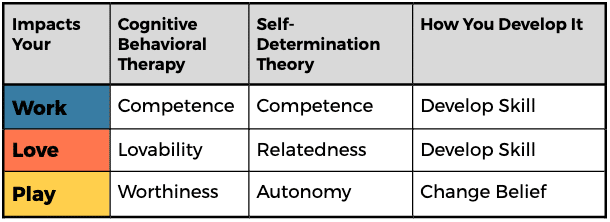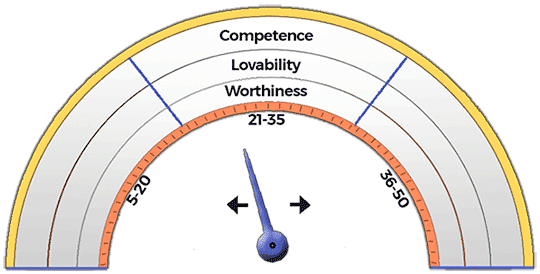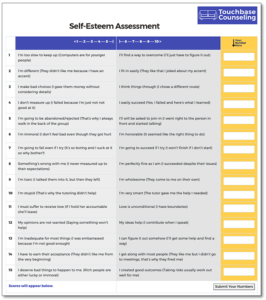How Does Self-esteem Affect Your Life?
How do you describe yourself? What are the go-to beliefs you hold about yourself?
How you answer these questions says a lot about your level of Self-esteem. Self-esteem is a significant measure of how much we “value, appreciate, or like ourselves” (Adler & Stewart, 2004).
To make this a more useful concept that can be applied to real-life situations, I’ve compiled two related theories. The first is Cognitive Behavioral Therapy and the idea that we all think, feel, and react to events after first consulting our core beliefs. According to Judith Beck, There are three categories of Core Beliefs we have about ourselves: (Beck, J. S., 2005)
- Helpfulness (personal competence, vulnerability, and superiority or inferiority)
- Lovability (ability to obtain the desired intimacy and attention)
- Worth (moral self-attributes, significance of oneself to the world)
These same three attributes of self-esteem also appear in Self-Determination Theory (SDT). SDT attempts to identify the motivations behind the choices we make in life.Researchers have identified three basic needs that are essential for constructive social development and personal well-being. These basic needs are:
- Competency
- Relatedness
- Autonomy
Self-esteem is often reported to be high When these three basic psychological needs are in balance. (Deci & Ryan, 2000)
Ready to Find Your Strongest Type of Self-esteem?
We all have different levels of these three types of self-esteem and one type is higher than the other two. Our strongest type of self-esteem will be the area of life where we are most comfortable and successful. The lowest level will be the area of life where we struggle more often.
The Self-Esteem quiz will help you discover your strongest area of self-esteem. This will most likely be the area of your life that seems to provide the most stability and source of satisfaction. It only takes about 3 minutes to answer 15 questions. Click HERE to take the Quiz.
Adler, N., & Stewart, J. (2004). Self-esteem. Psychosocial Working Group. Retrieved from http://www.macses.ucsf.edu/research/psychosocial/selfesteem.php
Beck, J. S. (2005). Cognitive therapy for challenging problems: What do do when the basics don’t work. New York, NY: Guilford Press.




